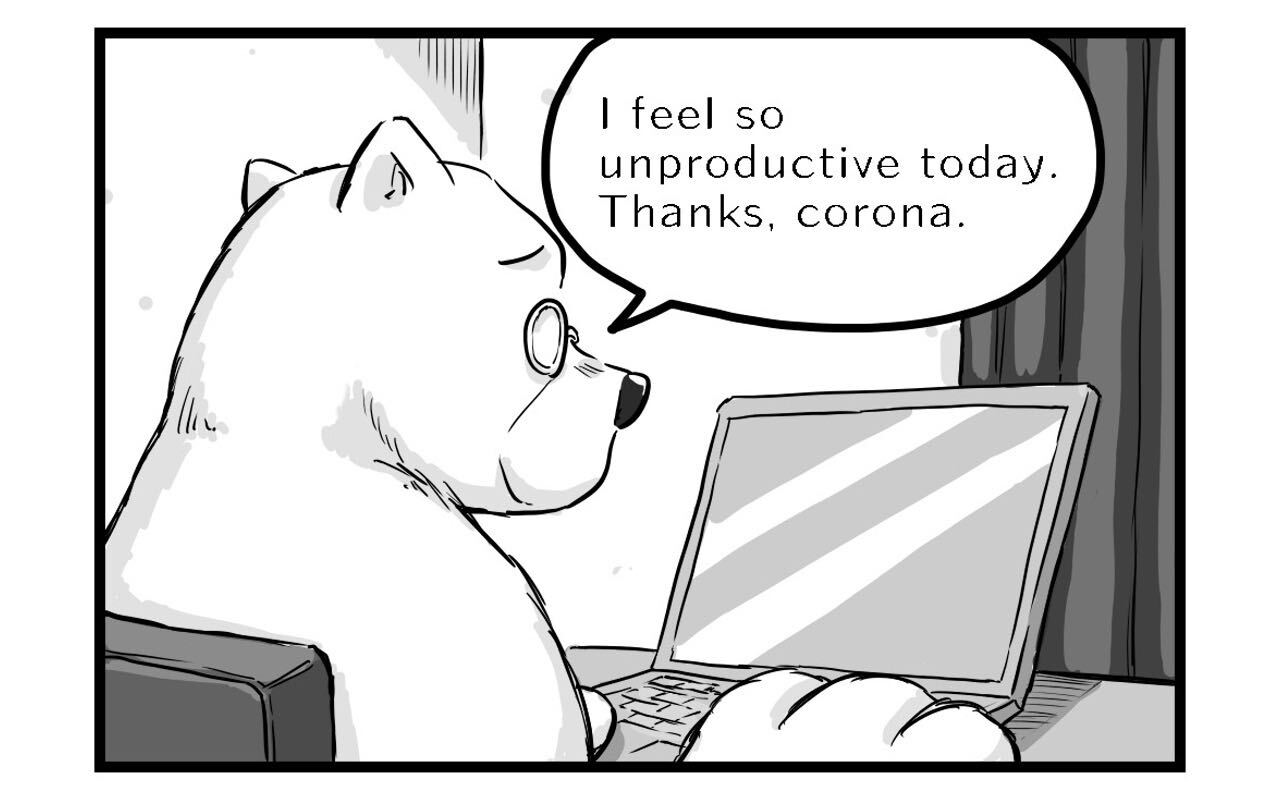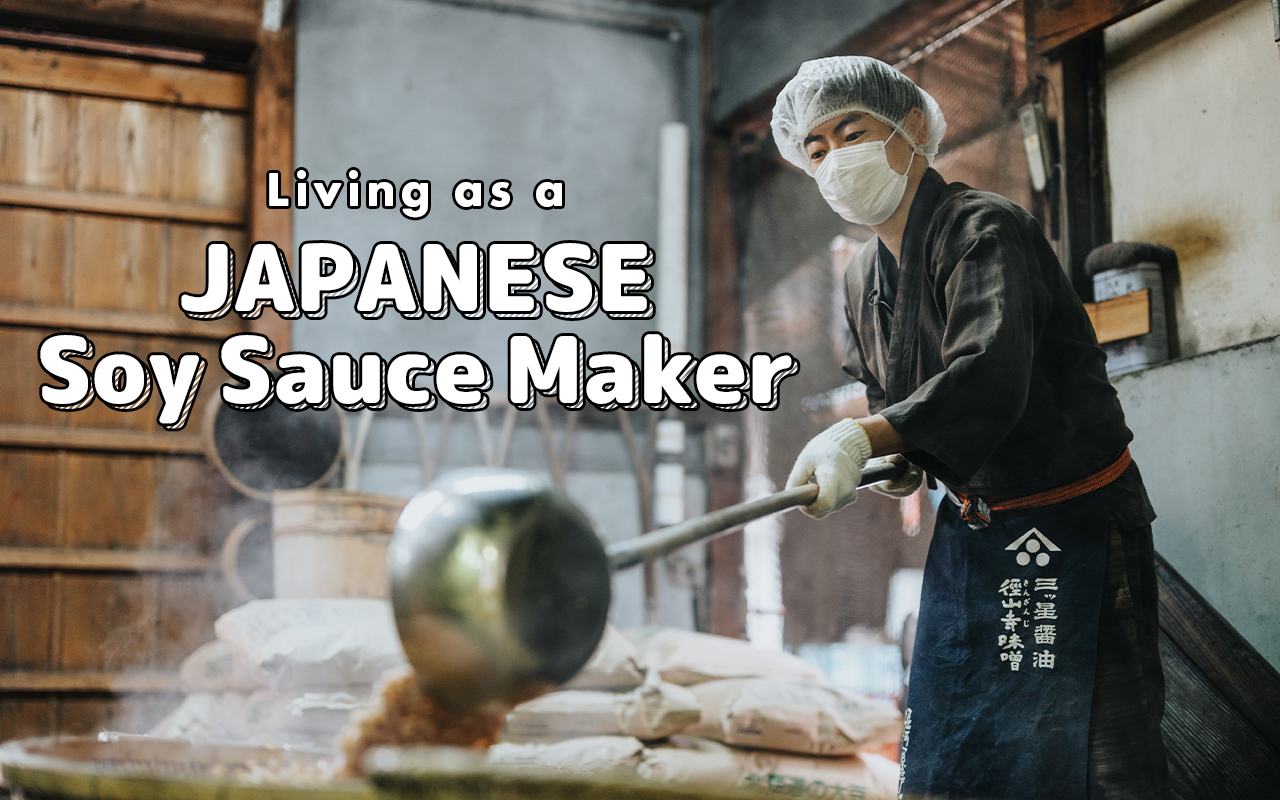When My Child Got Sick, My Team Stepped In
Two stories of how young parents asked their colleagues to turn baby sitters for a day
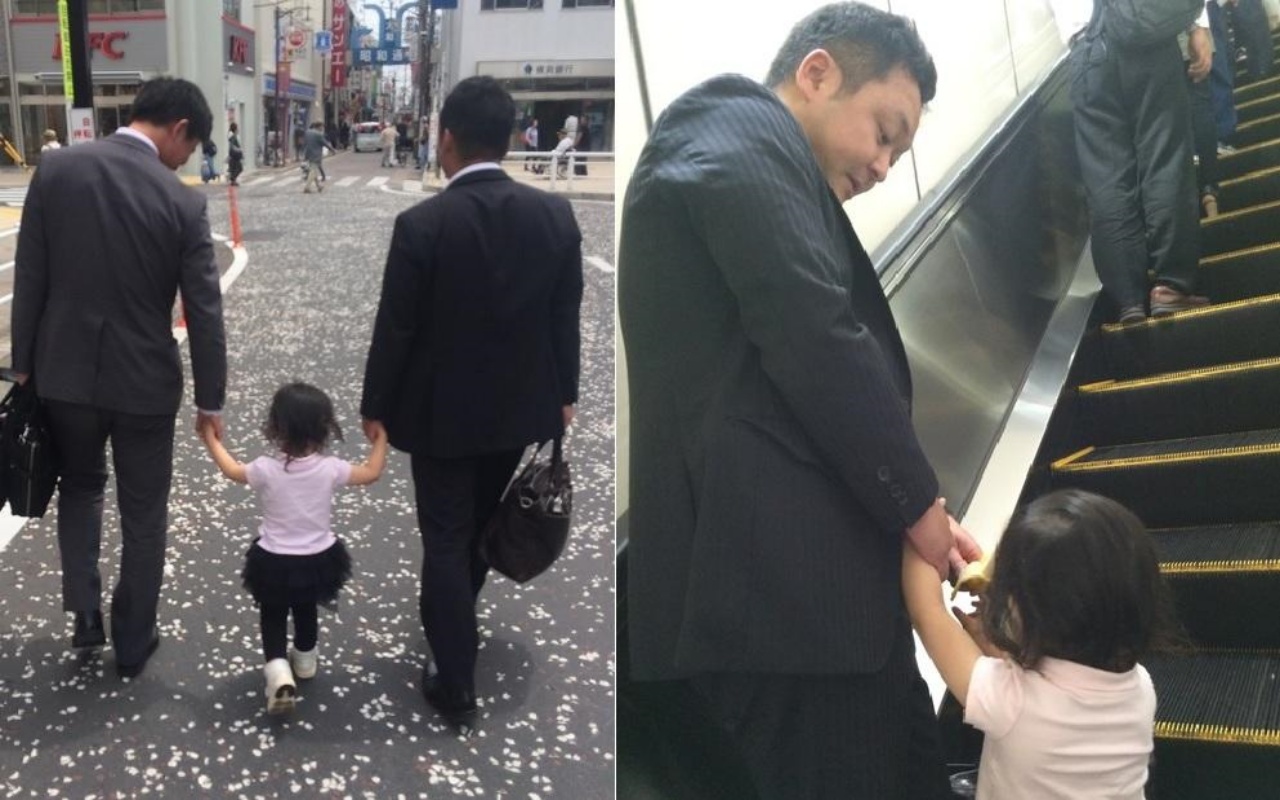
Every company's sales team is a bit different, but most tend to have the same overall goal: hitting their individual sales targets. In the world of sales, it's good practice to put your client or partner's priorities before your own. However, doing so can lead to severe headaches for dual-income families with young children.
I recently heard two interesting stories of young parents working for the sales department at my company, Cybozu. They found themselves in a bind and had to ask their colleagues to turn baby sitters for a day. I'd like to share these two stories with you, as well as comments I gathered from their manager, their sales director, and the CEO of Cybozu.
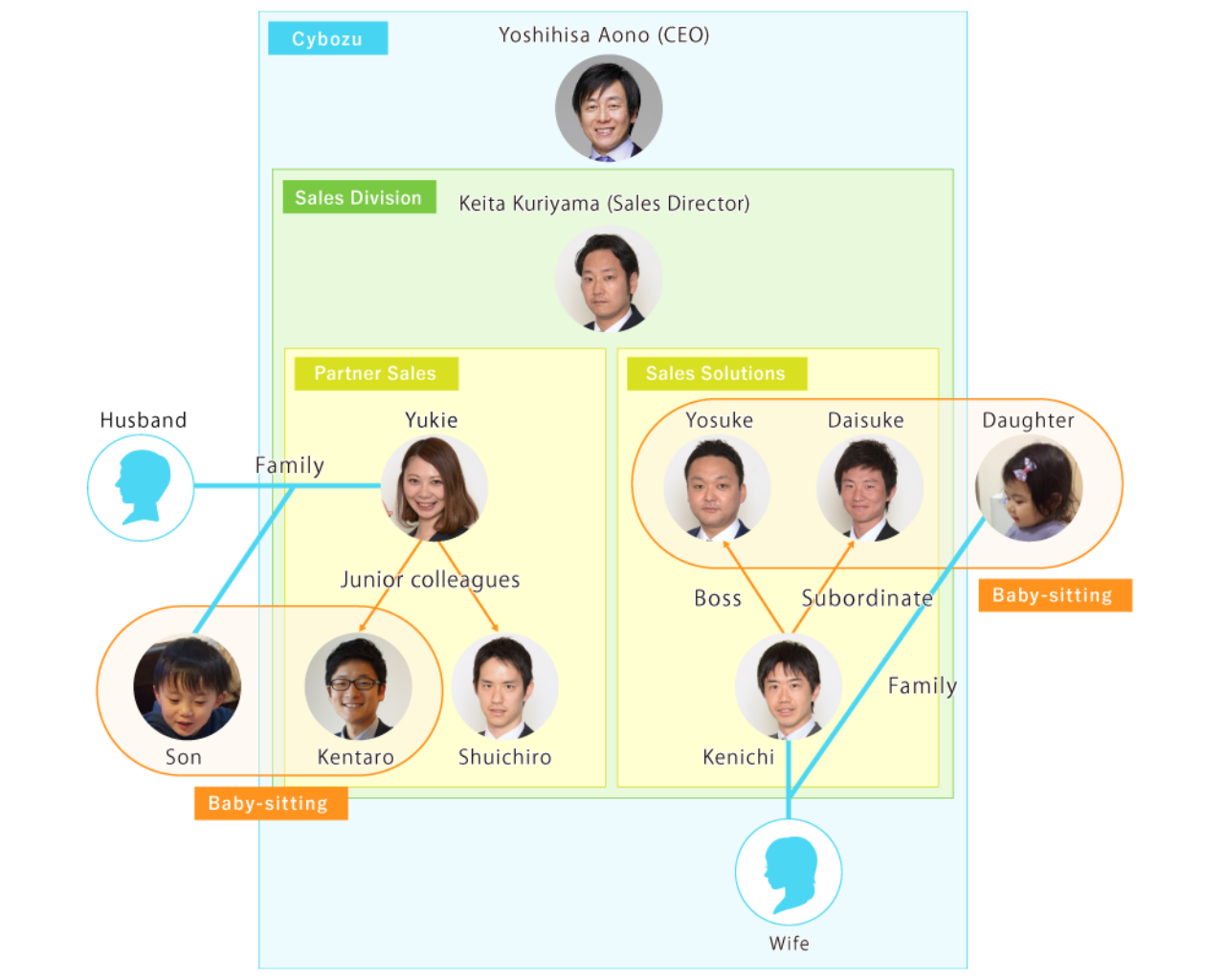
Her son's fever wouldn't go down
Our first story starts January 19. The son of Yukie Saida—a working mother and sales representative in charge of partnerships with major companies—woke up with a fever.
The following day, January 20, the fever still hadn't receded. Yukie asked her junior colleague, Shuichiro Fukazawa, to take over a sales meeting for her. She worked from home while taking care of her son.
However, that evening, the fever still hadn't gone down. Yukie took her son to the hospital, where he was promptly diagnosed with streptococcus.
Yukie was in a bind. The rule in her day care is that for streptococcus cases, to avoid contagion, you can't bring your child in until a full day after their fever has completely receded. The problem was that the following day, January 21, Yukie had an important sales meeting that no member of her team could cover.
She first asked her husband, also in sales but for a different company, if he could make time to look after their son. He replied that he could until the early afternoon, but then at 6 p.m. he had an important meeting that he couldn't miss under any circumstances.

Faced with this dilemma, Yukie asked another junior colleague from her division, Kentaro Sakamoto, if he would be willing to come to her house in the afternoon and work remotely while looking after her son.
Sakamoto accepted immediately. In just a few minutes, Yukie's problem was solved.
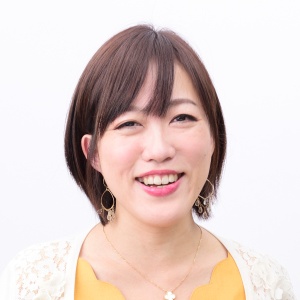



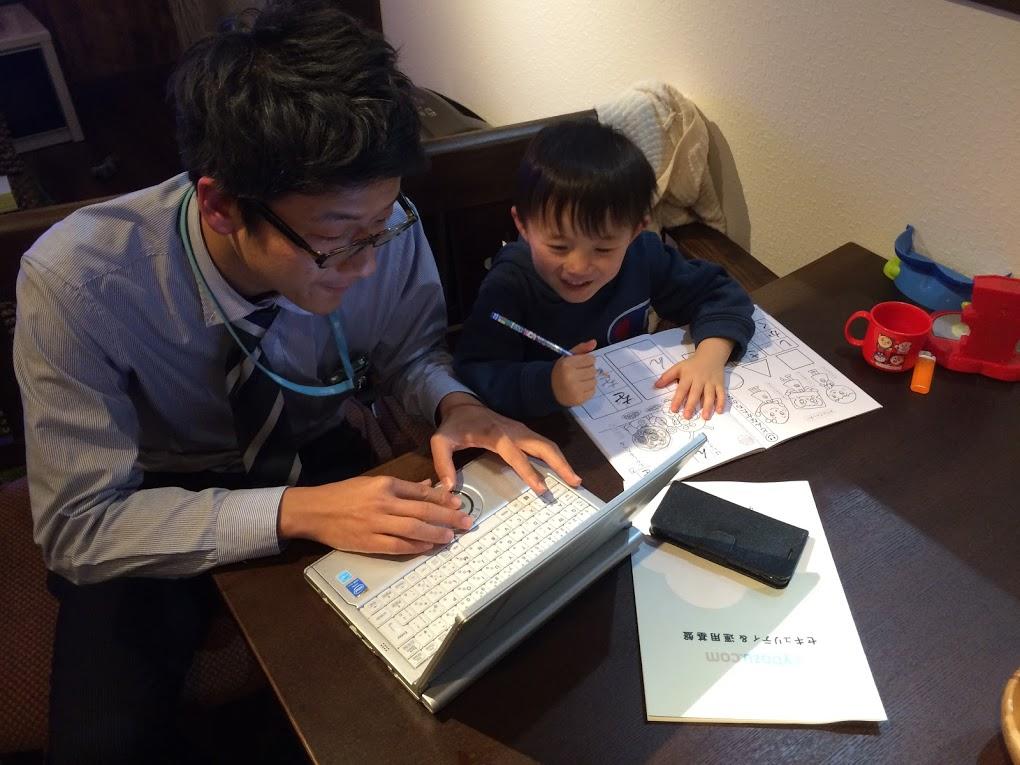
Kentaro working from home while taking care of Yukie's son. Kentaro's laptop seems more interesting than the coloring book!

I'm single, so taking care of a child by myself was a first for me. I'm grateful to Yukie for the new experience. (laugh)


My company also allows me to have a lot of flexibility in my workstyle. If I compare my situation to what I hear from working mothers in other companies, I feel like it was easier for me to adapt.
However, there are still times when for example I want to reply to an email or call a client immediately, but I have to wait until after putting my son to sleep, or until I'm on the train on my way home. On top of that, there were also times when I had to decline attending meetups that I wanted to attend, or schedule meetings based on when I had to go to the day care center.


He couldn't miss his meeting
Our second story is that of Kenichi Katsuzawa, who also works in the sales department and is in charge of product promotion for government agencies. It just so happened that on the day he had a major business meeting, his wife was due to go on an overseas business trip. In order to make it, they both had to leave early in the morning.
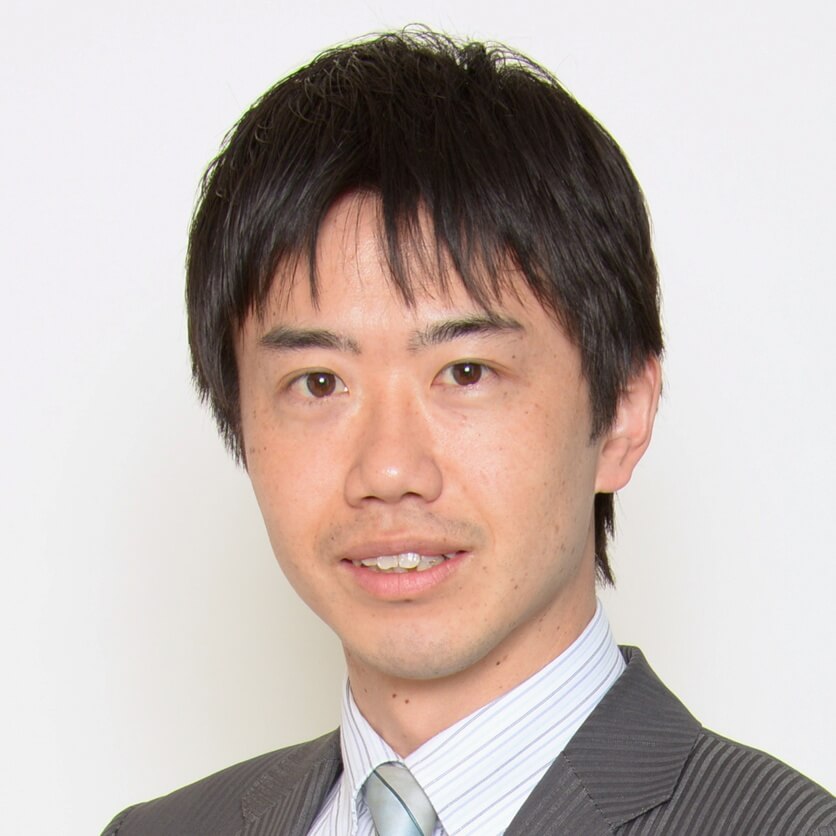
The night before, I got a call from my wife saying she just noticed that if I took our daughter to day care, I wouldn't be able to make it on time for my business meeting! It hit me that she was right, and I started to panic.




Instead, what we decided was that Yosuke and a junior colleague of mine called Daisuke would come over, and together we'd bring my daughter to the station closest to where the meeting was set to take place. There, I'd leave her with them for the roughly two hours that the meeting was supposed to last.
My daughter is very uncomfortable around strangers—for example, we've never left her alone with her grandparents—so I wanted to make sure that we would be separated for the least amount of time possible.




I've already brought my daughter along to meals with other team members several times. They know that twice a week, I have to leave the office at 6:30 p.m. to go pick her up at day care. I've gotten used to sharing information about my family life with other members of my team, and they've been very understanding.

I feel like there are very few companies where you can be open in front of everyone about such an incident.

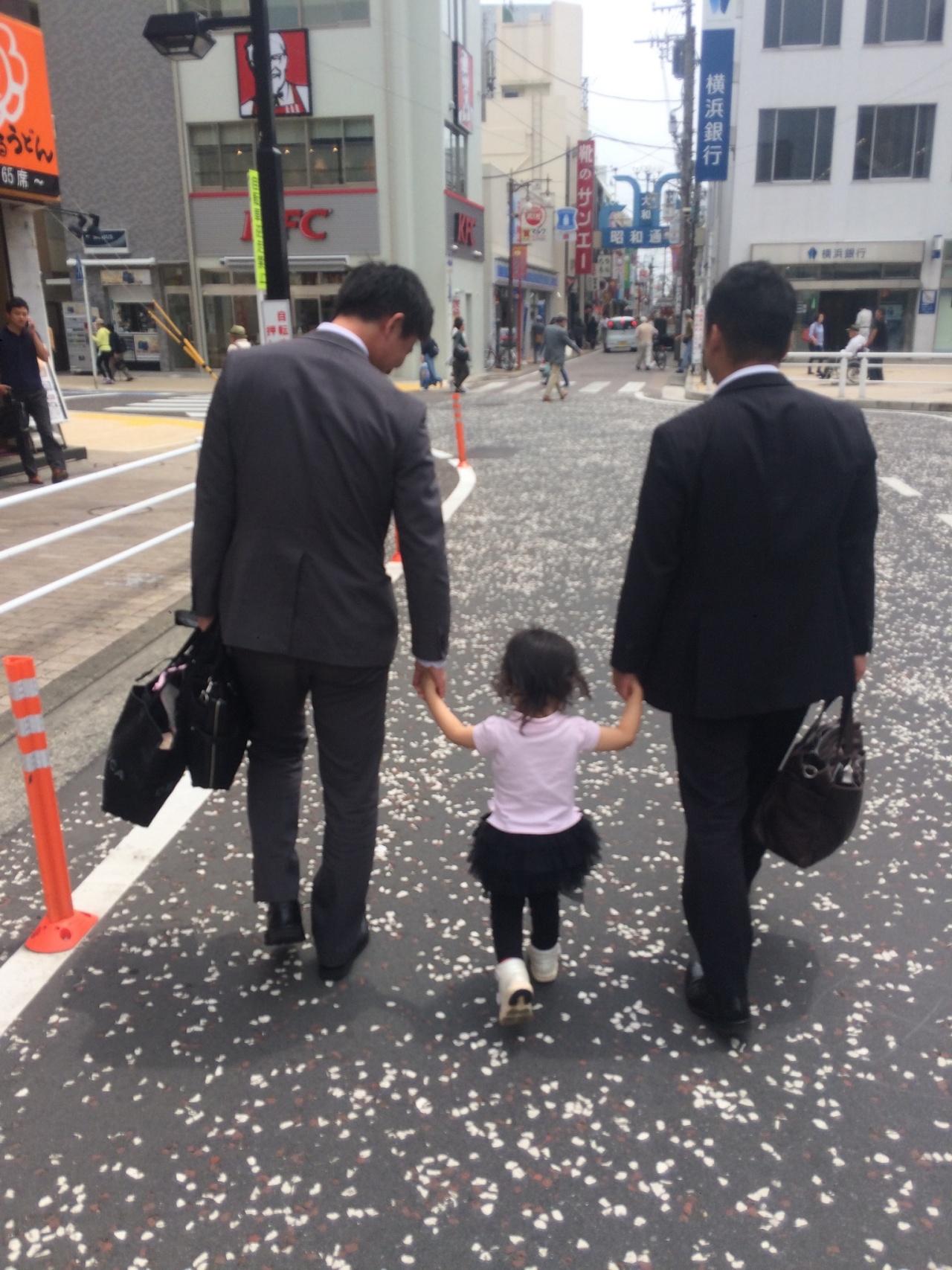




Not just when it comes to raising children—even when it comes to the issues we face on a day-to-day basis, without teamwork, we wouldn't be able to get anywhere.
His toughest sale ever
I was interested in how these two cases were received at higher levels of management, so I spoke to the person who actually took care of Kenichi's daughter, the head of the sales solutions department Yosuke Hiroto, as well as executive board member and head of sales Keita Kuriyama, and Cybozu CEO Yoshihisa Aono.



I remembered that on a previous occasion, Kenichi's daughter told me she really liked the cartoon Anpanman. During that whole train ride, I was focused on showing her videos of Anpanman on my smartphone. My goal was for her to see me as that nice uncle who always lets her watch her favorite show. (laugh)


It was probably one of the toughest sales I've ever had to make. Now I have more confidence than ever in my skills as a salesperson. (laugh) In fact, after the business meeting, one of our clients saw that I was baby-sitting and said he was impressed with how we handled the situation. That's when I knew I had made the right decision and started feeling a bit relieved.
Although to be honest, I do want Kenichi to be a bit more careful with his scheduling from now on. (laugh)
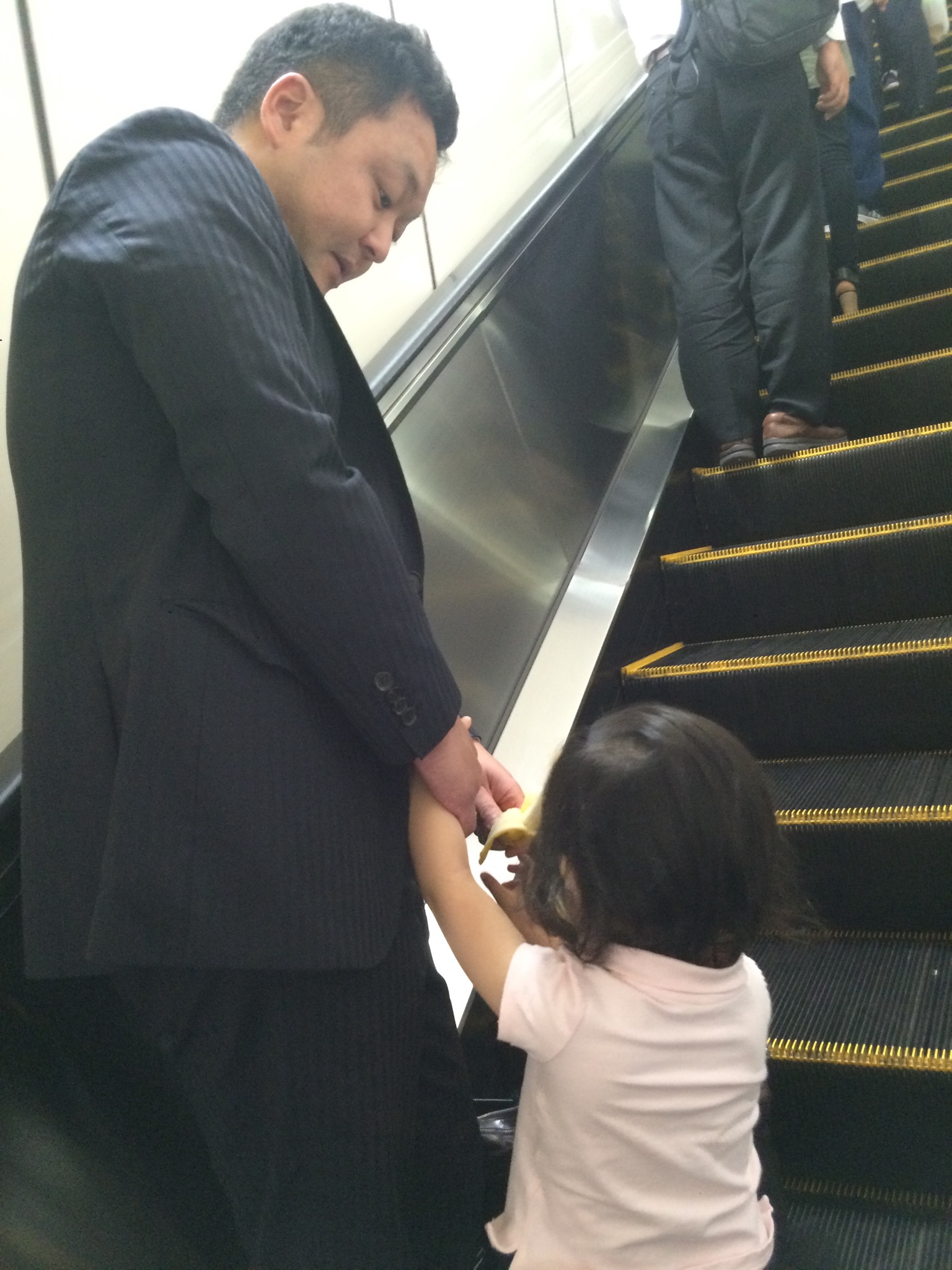
Baby-sitting isn't without risks
Keita Kuriyama, executive board member and head of sales at Cybozu
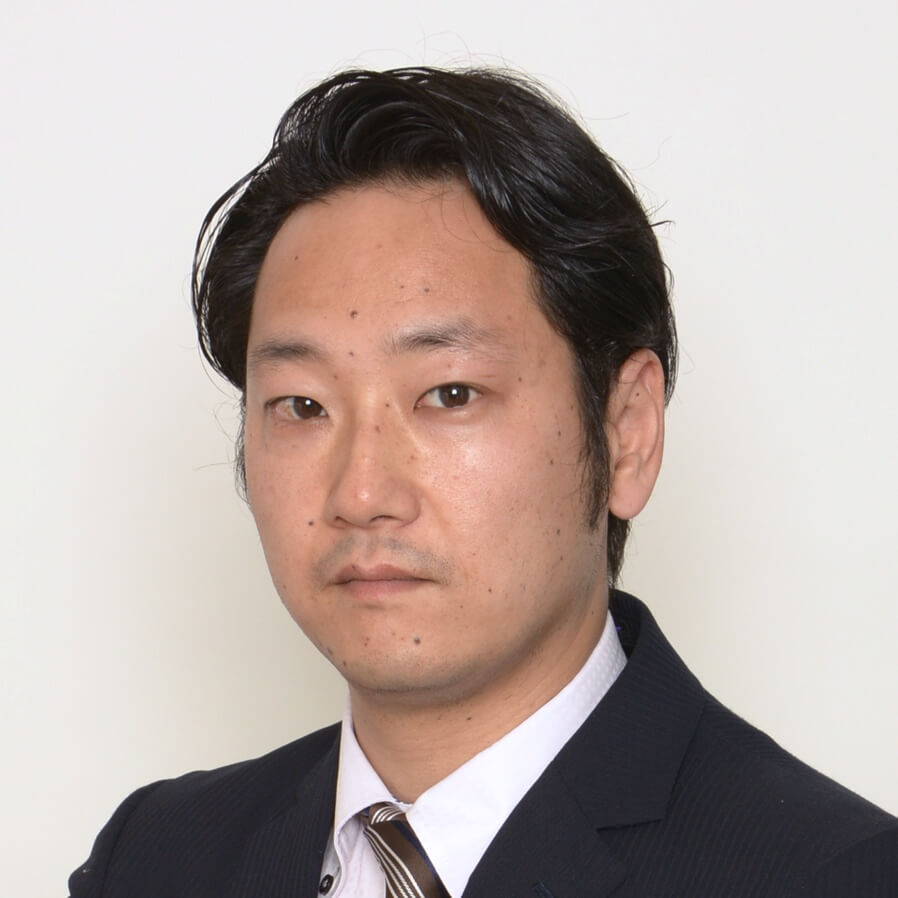
Especially in Yukie's case. She stepped back from the front line of the sales department after having her son. Valuing her top-tier sales acumen, we wanted to adapt to her needs. We asked her if, when she felt ready, she would come work part-time until 4:30 p.m. We're lucky that she accepted.




They decided as a team
Yoshihisa Aono, CEO of Cybozu Inc.


I don't believe raising children is the sole responsibility of the mother. It takes a village, by which I mean cooperation between families, companies and public child care services. It's important to have a multilayered safety net.


I also think it's beneficial for us as a company to have a system which values employees who are good at raising children. For example if we look at our male employees who are good at raising children, don't you think giving them room to grow within the company is a good thing?






In the future, I think this kind of response should remain on the table, and when it's the best option, I say go for it!
Cybozu started championing its "100 people, 100 workstyles" system over a decade ago. To this day, the company continues to develop this system, as well as advocate the benefits of allowing people to choose the way they work, rather than imposing a single workstyle.
Great Place to Work recognizes Cybozu as one of the best workplaces in Japan among midsize companies. Cybozu is also ranked among the best places for women to work, thanks to its "Career Mothers Internship" for mothers returning to work, as well as other human resource policies that support families.
The original article was published August 2, 2016 on our Japanese twin website CybozuShiki, and is available at the link below.
Original article written in Japanese by Yuka Ohara. Translated and adapted for Kintopia by Alex Steullet and Dan Takahashi.
Writer
Photographer

Dan Takahashi
Dan is an editor and photographer for Kintopia's Japanese twin website Cybozu-shiki. He is the most recent member to join the corporate branding department at Cybozu.
Editor

Alex Steullet
Alex is the editor in chief of Kintopia and part of the corporate branding department at Cybozu. He holds an LLM in Human Rights Law from the University of Nottingham and previously worked for the Swiss government.


